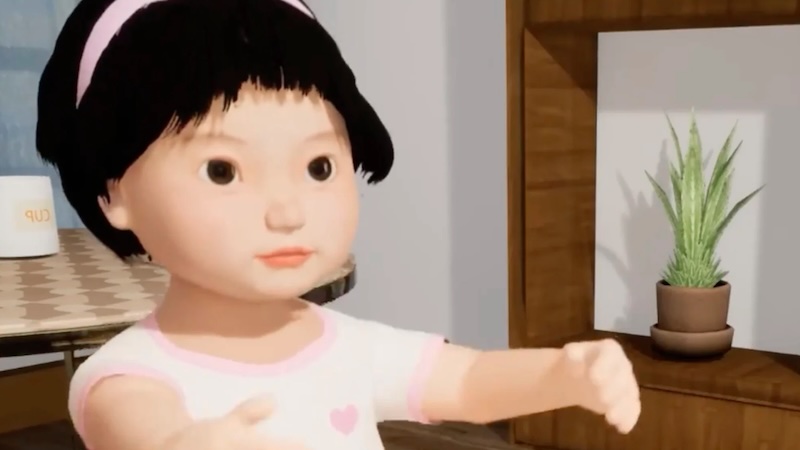Researchers from China recently presented the world’s first AI child. It is called “Tong Tong” and should be able to develop like a real person.
We are living in the age of AI. Every month, scientists around the world present new advances in the use of intelligent algorithms. It now seems that AI systems will soon be able to help us or even surpass us in many areas. But can the desire to have children also be realized with artificial intelligence?
Scientists from China recently demonstrated this and created Tong Tong. This is the world’s first virtual AI child. The researchers presented Tong Tong, also known as “Little Girl”, at the “Frontiers of General Artificial Intelligence Technology Exhibition” in Beijing at the end of January 2024.
Tong Tong: The world’s first learning AI child
Tong Tong is special in that she can assign tasks to herself. For example, the AI child tidies up her room when it gets messy or removes visible stains in her virtual living room. By exploring its own environment, the system is supposed to learn autonomously and become better and better.
Ton Tong apparently represents the next step in AI development, in which systems are not solely dependent on training data. However, the AI child is not only good at performing tasks. The girl also responds humorously to questions and even refines her own language skills based on spoken input.
Artificial intelligence to create an emotional level
The researchers would initially like to use Tong Tong in the education and entertainment sector. The virtual girl could also help with customer service or therapy support. The researchers’ long-term goal is for Tong Tong to continue to develop and connect with people on an emotional level.
It is not yet entirely clear how people will react to Tong Tong. In the long term, however, it is likely to be decided whether AI systems with human characteristics will be accepted or whether that time has simply not yet come.










